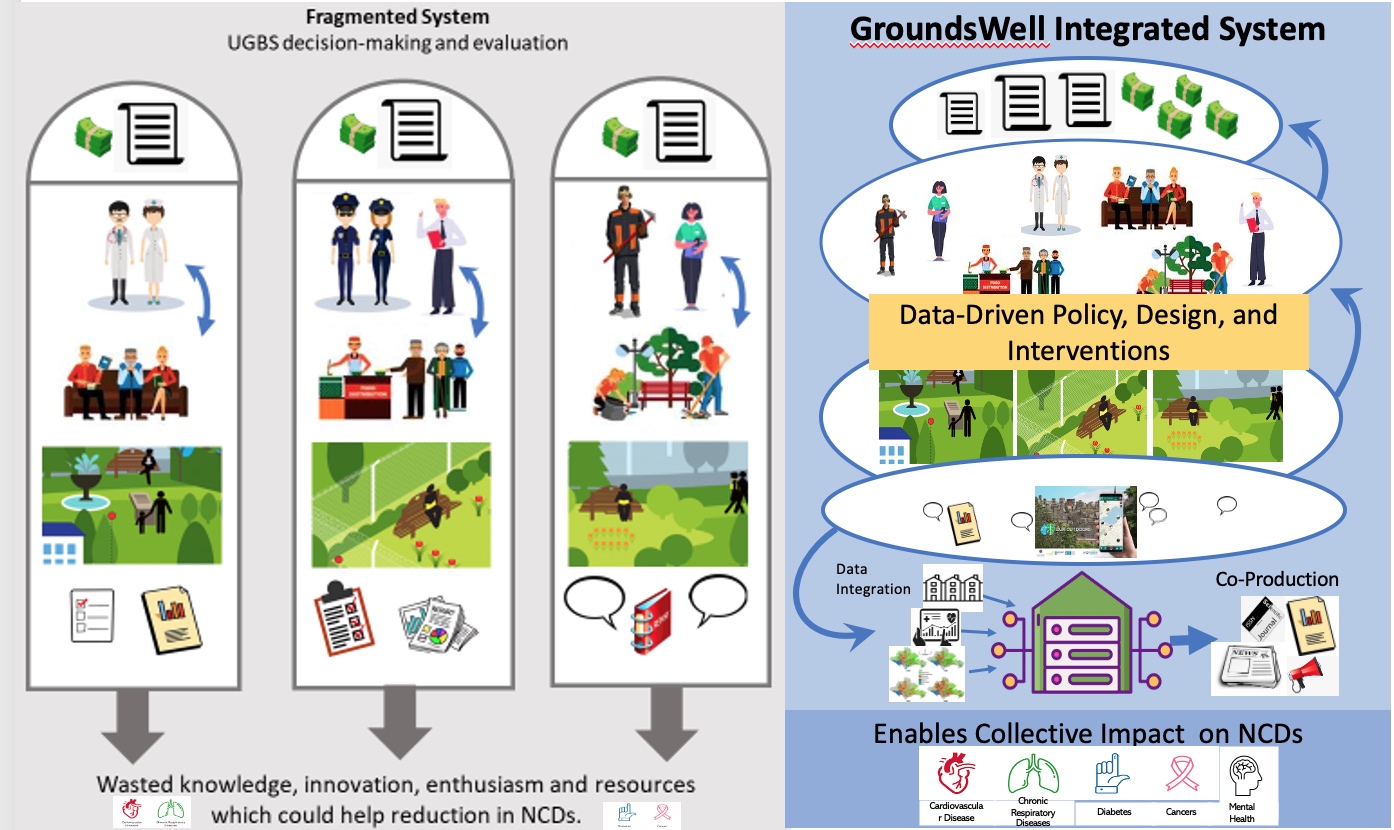There is strong evidence that natural environments within urban areas, such as parks, woodlands, lakes and beaches, have positive impacts on health. These urban green and blue spaces (UGBS) could be huge assets for protecting and equalising health if they were available, accessible, valued and well-used, particularly by less advantaged groups. The problem is that they are not. This is largely because the many policies, organisations and communities involved in designing, creating, managing, promoting, maintaining and using UGBS are disconnected. Also, the voices of less advantaged communities that UGBS could be helping most are either not heard or not persuasive. Perhaps as a consequence, those communities are much less likely to benefit from these spaces. We know that the UGBS we have are not the UGBS we need to make the best possible contribution to better and more equal health. GroundsWell aims to change that. We propose a new partnership – researchers working together with communities and those who currently create and control UGBS, to plan, design and manage it better so that it benefits everyone, especially those who need it most.

